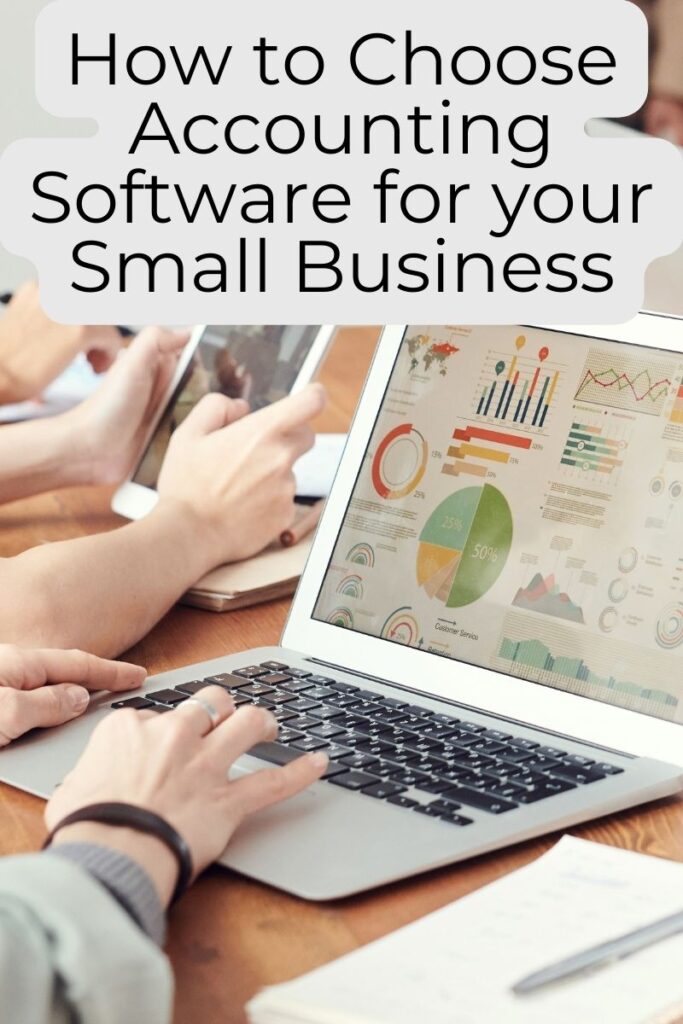There a plenty of accounting and bookkeeping software subscriptions available. If you are wondering How to Choose Accounting Software for your Small Business, read on for some helpful tips.
1. Assess Your Business Needs:
Before diving into the world of accounting software, take time to assess your business’s specific requirements. Consider factors such as the size of your business, industry-specific needs, number of employees, and your current and future accounting needs. Identify key functionalities you require, such as invoicing, payroll management, inventory tracking, tax preparation, financial reporting, and integration capabilities with other business tools.
2. Determine Your Budget:
Establish a clear budget for your accounting software investment. Consider not only the upfront costs but also ongoing fees such as subscription charges, maintenance fees, and potential costs for additional features or support. Balance your budget with the value and features offered by different software options to find the best fit for your financial resources.
3. Research Available Options:
Conduct thorough research on available accounting software options. Explore reputable software providers and read reviews from other businesses in your industry. Look for software that has a proven track record of reliability, security, and customer support. Consider whether you prefer cloud-based software that offers remote accessibility or on-premises software that provides more control over your data.
4. Evaluate Features and Functionality:
Compare the features and functionality offered by different accounting software solutions. Look for essential features such as invoicing, expense tracking, bank reconciliation, financial reporting, and tax preparation tools. Consider whether the software integrates with other applications you currently use or plan to use in the future, such as CRM systems, payroll software, or e-commerce platforms.
5. Consider User Interface and Ease of Use:
Choose accounting software with a user-friendly interface that aligns with your team’s technical expertise. A clean and intuitive interface can streamline daily tasks and reduce the learning curve for your employees. Test the software through demos or free trials to evaluate its usability and accessibility.
6. Ensure Security and Compliance:
Prioritize software that offers robust security measures to protect your financial data from unauthorized access and cyber threats. Check whether the software complies with industry standards and regulations relevant to your business, such as GDPR or HIPAA compliance for specific industries.
7. Scalability and Flexibility:
Select accounting software that can scale with your business growth. Consider whether the software allows you to add users, upgrade plans, or integrate additional features as your business expands. Flexibility is essential to accommodate changes in your business operations and financial management needs over time.
8. Customer Support and Training:
Evaluate the quality of customer support and training provided by the software vendor. Choose a provider that offers responsive customer support channels, such as phone, email, or live chat, to address any technical issues or questions promptly. Look for software that provides comprehensive training resources, tutorials, and user guides to help your team effectively utilize the software.
9. Seek Recommendations and References:
Seek recommendations from peers in your industry or business network who have experience with different accounting software solutions. Ask for references from software vendors and contact existing users to gain insights into their experience with the software’s performance, reliability, and customer service.
10. Take Advantage of Free Trials:
Before making a final decision, take advantage of free trials or demos offered by accounting software providers. Use this opportunity to test the software’s features, functionality, and user interface firsthand. Involve key stakeholders from your finance and IT departments in the evaluation process to gather diverse perspectives and ensure alignment with your business objectives.
If you are looking for accounting software I highly recommend Quickbooks Online.
Read more: How to Choose Accounting Software for Your Small Business